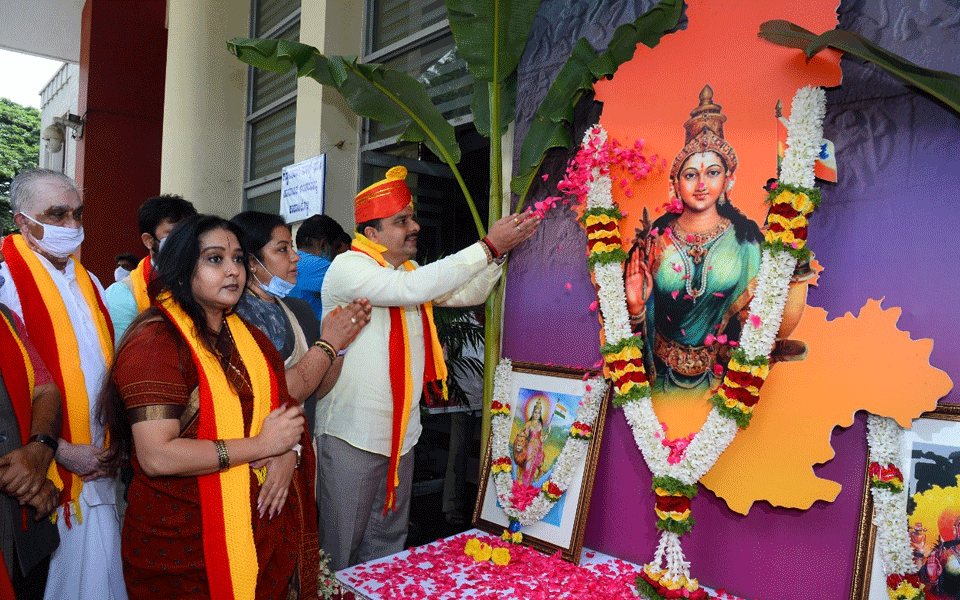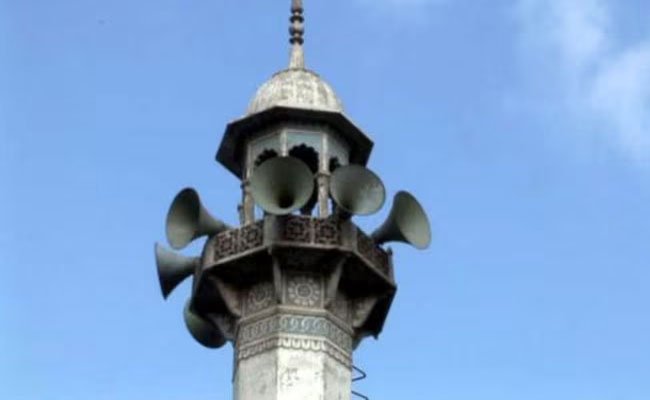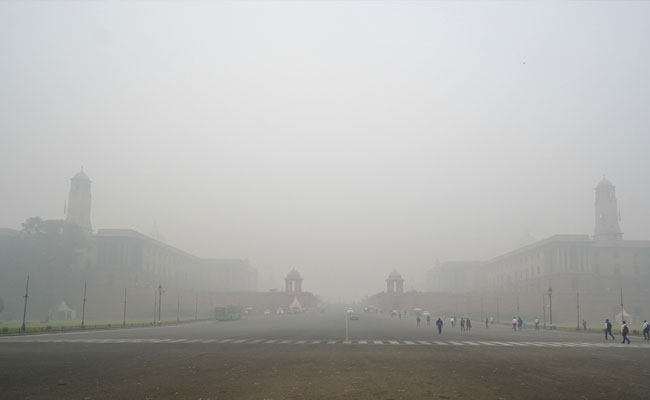Bengaluru: Minister for Energy and Culture, V. Sunil Kumar said, “By inculcating a habit of reading a Kannada newspaper per day, reading a Kannada book per month, and similarly watching a Kannada movie once every two months, it is possible for people to also play their part in the growth of the Kannada language and culture.”
The Minister who offered floral tribute to the images of ‘Bharathambe’ and ‘Kannadaambe’ at the premises of the Bengaluru Ravindra Kalakshetra on Wednesday, thus took over the ministerial position of the department.
“Work needs to be done to bring culture to the power department and bring power to the Culture department, and I will sincerely strive to do that”, he said.
“I will undertake all necessary measures to impeccably bring reform in governance in both departments, for efficient implementation of programs”, he informed.
During the occasion, the Kannada and Cultural department’s Jaanapadashree Award recipient for the year 2019-20, Bheemavva Dodda Baalavva Shillekyata, and recipient of BV Karanth Award, H. V. Venkatasubbaiah were conferred with their respective awards in the premises of the Kalakshetra.
Sitting on the steps of the Kalakshetra, the Minister signed the departmental files and officially began his ministerial duties. Thereafter, he visited the Sirigannada Bookstore under the Kannada Books Authority and paid Cash and bought Kanakaavalokana book, along with DVG’s ‘Nenapina Chitragalu’ and Shivaram Karanth’s Book of Plays.
President of Kannada Development Authority T. S. Nagabharana, President of the Border Development Authority Dr. C. Somashekhar, President of Kannada Books Authority Dr. M. N. Nandish Hanche, President of Sahitya Acedemy Vasanthkumar B. V., President of Karnataka Movie Academy Sunil Puranik, President of Music and Dance Academy Aanur Ananth Krishnasharma, President of Karnataka Lalithakala Academy Mahidra, Member of the Vidhana Parishad Tara Anuradha, Theatre artist B. V. Rajaram, Art Director Shashidhar Adapa, Actress Malavika Avinash, Mysuru Theatre Director Addanda Karyappa, Silent Coordinator of the Kanaka Studies Faculty M. R. Satyanarayan and Secretary of the Kannada and Cultural Department Ravishanker, Director of the Kannada and Cultural Department S. Rangappa were present.








Let the Truth be known. If you read VB and like VB, please be a VB Supporter and Help us deliver the Truth to one and all.
Jamshedpur (PTI): One person was arrested on the charge of raping a 30-year-old woman with speech impairment in Jamshedpur, a police officer said on Tuesday.
The incident occurred in the Azadnagar police station area of the city, and a case in this regard was registered based on the statement of the victim's brother on Monday.
The victim had gone to fetch water from the premises of a company on Monday evening. When she did not return even after a considerable time, family members went out in search of her and caught the accused red-handed, police said.
ALSO READ: BJP accuses Karnataka govt of 'failing' to prevent noise pollution caused by 'azaan'
The accused was a caretaker of the company.
Deputy Superintendent of Police (Patamda) Bachandeo Kujjur said due to scarcity of water in the area, the victim used to fetch water from the premises of the company.





